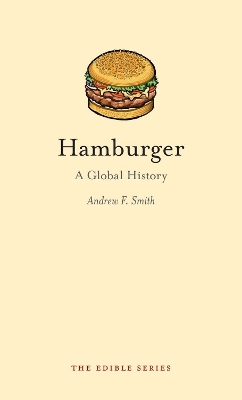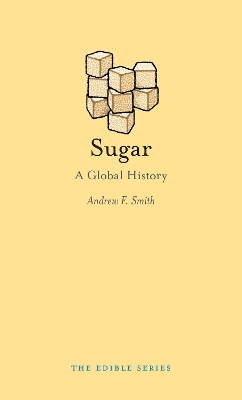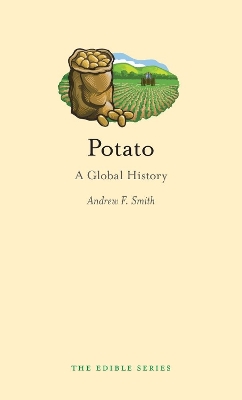Edible
3 total works
McDonald's founder Ray Kroc once said, 'It requires a certain kind of mind to see beauty in a hamburger bun'. The hamburger has been both a source of gluttonous joy and a recurrent obstacle to healthy eating. Now the full beauty of the burger in all its forms is explored in this book. Andrew F. Smith traces the global history of the hamburger from its humble beginnings as a nineteenth-century street food sold by American vendors. It soon spread to the menus of diners and restaurants, and it came into its own with the 1921 opening of the first US hamburger chain,White Castle. Subsequent successful food chains such as McDonald's and Wendy's ensured the burger's success in the United States and around the world. The hamburger irrevocably changed Americans' eating habits as it propelled the rise of fast food over home-cooked meals. At the same time, burgers were making inroads in culture, becoming a rich symbol in paintings, television and cinema. Smith also discusses the wider nutritional, economic and cultural conflicts raised by the hamburger, such as the McDonaldization' of international cultures.
A juicy, meaty and richly illustrated read, Hamburger will stimulate the taste buds of hamburger aficionados the world over.
A juicy, meaty and richly illustrated read, Hamburger will stimulate the taste buds of hamburger aficionados the world over.
Sugar is one of the most beloved substances consumed by humans, and also one of the most reviled. It has come to dominate our diets - whether in candy, desserts, soft drinks or even bread and pasta sauces - for better and for worse. This fascinating history of this addictive ingredient reveals its incredible value as a global commodity and explores its darker legacies of slavery and widespread obesity.Sugar's past is chock-full of determined adventurers: relentless sugar barons and plantation owners who worked alongside plant breeders, food processors, distributors and politicians to build a business based on our cravings. Exploring both the sugar cane and sugar beet industries, Andrew F. Smith tells story after story of those who have made fortunes and those who have met their demise because of sugar's simple but profound hold on our palates. Delightful and surprisingly action-packed, this book offers a layered and definitive tale of sugar and the many people who have been caught in its spell, from barons to slaves, and from chefs to the countless among us born with that insatiable devil - the sweet tooth.
From its obscure Pre-Columbian beginnings in South America to its global popularity today, the story of the potato is one of rags to riches. In Potato, esteemed culinary historian Andrew F. Smith reveals the captivating story of a once lowly vegetable that has changed - and continues to change - the world. First domesticated by prehistoric people in the Andes, the potato has since been adopted by cultures all over the globe. After its discovery by Europeans, goverments and monarchs encouraged the people to farm it because it was so nutritious and easy to grow, but its new position as the staple of the poor meant mass starvation in nineteenth-century Ireland when potato blight wiped out the crops. The potato was also adopted by cooks in India and in China, which is now the world's largest potato producer. Despite its popularity, in this era of both fast food and health consciousness, the potato is now suffering negative publicity for the very quality for which it was lauded by our forefathers: being a good source of carbohydrate. But is it fair to blame the humble spud for our habit of covering it with butter or sour cream or deep-frying it in oil?
Potato is a captivating account of the history, economy, politics and gastronomy behind this beloved tuber. Like a well-dressed baked potato, this book will both comfort and satisfy the reader.
Potato is a captivating account of the history, economy, politics and gastronomy behind this beloved tuber. Like a well-dressed baked potato, this book will both comfort and satisfy the reader.


